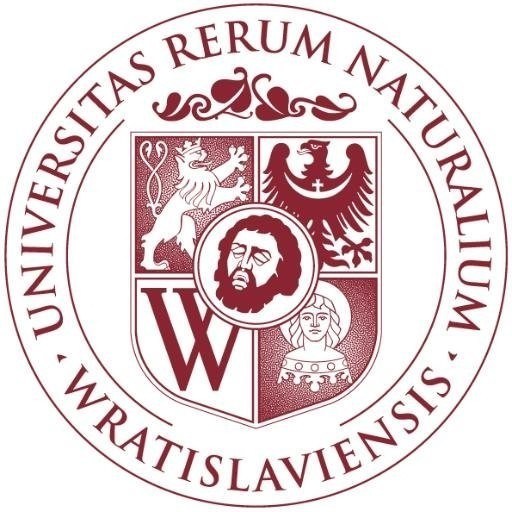Environmental Protection is a comprehensive and interdisciplinary undergraduate program offered by the University of Bialystok dedicated to developing professionals equipped to address the pressing environmental challenges of our time. This program provides students with a solid foundation in the natural sciences, including biology, chemistry, physics, and Earth sciences, combined with socio-economic studies to foster an understanding of human-environment interactions. Students will learn about the principles of sustainable development, environmental legislation, waste management, water and air quality control, and conservation strategies. The curriculum emphasizes both theoretical knowledge and practical skills, ensuring graduates are prepared to work effectively in various sectors such as environmental consultancy, public administration, industry, and research institutions. Throughout the course, students will engage in laboratory exercises, fieldwork, and project-based learning to gain hands-on experience in environmental monitoring, data analysis, environmental impact assessments, and the development of eco-friendly solutions. The program also promotes awareness of global environmental issues like climate change, biodiversity loss, and pollution, encouraging students to become responsible and innovative environmental professionals. Upon completion of the program, graduates will possess the technical expertise and ethical understanding necessary to contribute to environmental protection efforts and promote sustainable development practices. The University of Bialystok's Environmental Protection program aims to prepare students for a dynamic career dedicated to safeguarding natural resources and improving quality of life for future generations.
The Environmental Protection program at the University of Bialystok offers students a comprehensive education in managing and safeguarding natural resources, understanding ecological processes, and addressing environmental challenges. The curriculum is designed to equip graduates with theoretical knowledge and practical skills necessary to analyze environmental issues, develop sustainable solutions, and implement effective environmental policies. Students will explore key topics such as environmental chemistry, ecology, waste management, water and air pollution control, renewable energy sources, and environmental legislation. The program emphasizes interdisciplinary approaches, combining natural sciences, social sciences, and legal aspects to foster a holistic understanding of environmental protection strategies.
Throughout the course of study, students participate in laboratory work, field exercises, and seminars that enhance their analytical, research, and problem-solving abilities. They gain practical experience through internships with environmental agencies, consulting firms, and environmental technology companies, allowing them to apply theoretical concepts in real-world settings. Special attention is given to sustainable development principles, climate change mitigation, and environmental impact assessments, preparing students to work effectively in governmental organizations, environmental consulting agencies, NGOs, and private companies.
The program also aims to develop awareness of ethical considerations related to environmental stewardship and promotes active engagement in community-based environmental initiatives. Graduates of the Environmental Protection program are well-prepared to pursue careers in environmental management, ecological consulting, policy-making, and research. They are equipped to contribute to solving complex environmental problems, ensuring sustainable use of natural resources, and protecting ecosystems for future generations. With a strong foundation in both scientific analysis and policy development, students leave the program ready to make a meaningful impact in the field of environmental protection locally, nationally, and globally.
A graduation diploma of first degree studies and a document certifying the knowledge of English.
Want to improve your English level for admission?
Prepare for the program requirements with English Online by the British Council.
- ✔️ Flexible study schedule
- ✔️ Experienced teachers
- ✔️ Certificate upon completion
📘 Recommended for students with an IELTS level of 6.0 or below.
The financing of the Environmental Protection program at the University of Bialystok is primarily supported through a combination of governmental funding, student fees, and potential external grants. As a public university in Poland, the University of Bialystok relies significantly on subsidies from the Ministry of Education and Science, which allocate resources for higher education institutions based on various criteria including the number of enrolled students and approved curricula. Tuition fees are set in accordance with the regulations governing public universities in Poland and are considered an important source of supplementary funding for the program. These fees are paid by domestic and international students, with the amount varying depending on the level of studies and the specific agreements for international students.
In addition to government allocations and tuition fees, the Environmental Protection program may also benefit from external funding sources such as European Union grants, research projects, and partnerships with environmental organizations. These funds are often aimed at supporting research initiatives, innovative teaching methods, and practical training opportunities for students. The university actively seeks grants from programs such as Horizon Europe and other EU research and development funds that promote sustainable development and environmental sciences.
Furthermore, the program may receive funding through student research grants, scholarships, or sponsorships from local environmental agencies and enterprises invested in sustainable practices. These financial resources enable the university to maintain state-of-the-art laboratories, purchase modern equipment, and develop curriculum content aligned with current environmental challenges.
The university’s strategic approach includes diversifying income sources to ensure the quality and sustainability of the Environmental Protection program. Financial planning includes long-term investments in faculty development, infrastructure, and student support services, aiming to foster an environment conducive to innovative learning and research in environmental sciences.
In conclusion, the funding of the Environmental Protection program at the University of Bialystok is multi-faceted, combining public funding, tuition fees, external grants, and private sector sponsorships, all geared toward providing high-quality education and research opportunities that prepare students for careers in environmental protection and sustainable development.
The Environmental Protection programme at the University of Bialystok is designed to provide students with comprehensive knowledge and practical skills necessary for addressing contemporary environmental challenges. This interdisciplinary course covers a wide range of topics, including ecology, biology, chemistry, law, and management, aiming to train specialists capable of developing sustainable solutions for environmental issues. Students are engaged in both theoretical studies and practical exercises, such as laboratory work, field studies, and case analyses, to ensure a well-rounded understanding of environmental processes and protection strategies. The curriculum emphasizes the importance of legislation and policy-making in environmental protection, preparing graduates to work in governmental agencies, environmental consulting firms, non-governmental organizations, and international bodies. The programme also fosters skills in environmental impact assessment, resource management, pollution control, and conservation techniques. Students have access to modern laboratories and participate in research projects that address real-world environmental problems. Graduates of this programme are equipped to analyze environmental data, develop mitigation plans, and implement strategies for sustainable development, ensuring their contribution to environmental preservation at local, national, and global levels. The programme's multidisciplinary approach and practical orientation make it a valuable pathway for those interested in making a positive impact on the environment through scientific, technical, and policy-oriented roles. The University of Bialystok maintains strong connections with environmental organizations, providing students with internship opportunities and industry collaborations that enhance their professional readiness. Overall, the Environmental Protection programme prepares students for a dynamic and vital career in safeguarding the environment and promoting sustainable development practices.











